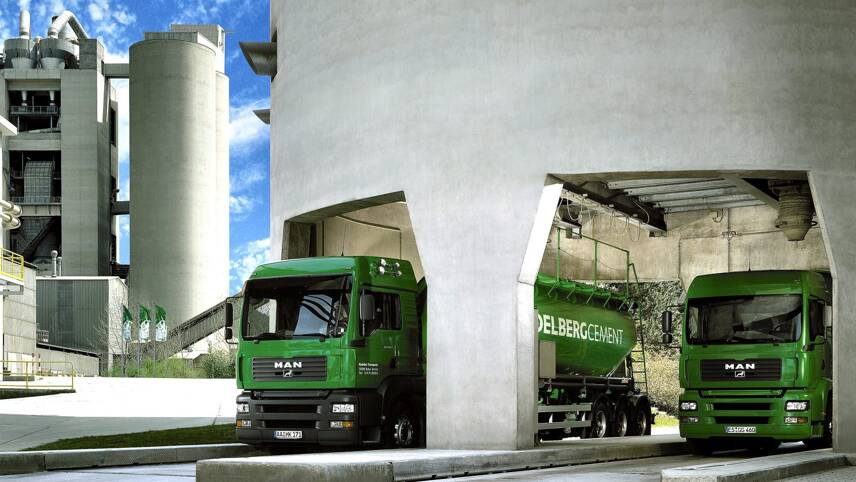Register for free and continue reading
Join our growing army of changemakers and get unlimited access to our premium content

Image: HeidelbergCement / Steffen Fuchs
The Global Cement and Concrete Association (GCCA) announced today (10 May) that it has chosen the first six start-ups to receive funding through its ‘Open Challenge’ scheme, with five of these projects developing and scaling CCUS technologies. edie has asked for more information on the level of funding being made available.
As well as receiving funding, the start-ups will be invited to trial and scale their technologies at facilities operated or owned by GCCA member companies. Each consortium for testing and developing technologies will have the ultimate aim of bringing them to commercial-scale deployment.
British firm MOF Technologies is one of the five CCUS start-ups to be chosen under the Challenge. It has created modular carbon capture plants which it claims are up to 80% more efficient than the industry average. Vacuum swing absorption is used to filter out CO2e from flue gas and capture them in a metal-organic framework (MOF). MOF Technologies will develop and scale its solution at facilities operated by Buzzi Unicem, Cementir Holding and HeidelbergCement.
The other CCUS start-ups receiving backing are Carbon Upcycling Technologies, which upcycles captured carbon into building materials; and carbon capture technology producers CarbonOrO, Fortera and Sapiem.
While CCUS has been the focus of this round of Open Challenge funding, the GCCA has also chosen to support Coomtech, which has developed a new drying technology that reduces the energy consumption of the drying process. The British start-up claims that thermal drying processes often waste up to 75% of the energy they consume. Coomtech will be supported by Buzzi Unicem, CRH, JSW Cement and UltraTech Cement.
The GCCA’s chief executive Thomas Guillot said: “It’s a proud moment to see the industry coming together to support such innovative start-ups on their journey. Our member companies were greatly impressed by their ambition to be a key part of the climate solution. The programme is another big step forward towards unlocking innovation to help us achieve our net-zero goal.”
The Association last year launched a new workstream aimed at transforming the sector deliver carbon-neutral products only by 2050. This scheme, the Concrete Action for Climate initiative, is being run in partnership with the World Economic Forum. Subsequently, the Association launched a set of 2030 climate ambitions for the sector to collaboratively work towards on the road to net-zero by 2050.
Cement and concrete production is a hard-to-abate activity that accounts for around 7% of global annual greenhouse gas emissions. The Association’s roadmap for addressing the sector’s climate impact involves improving energy and material efficiencies, implementing innovative clinker production methods, adopting low-carbon fuels, electrifying processes and using CCUS. CCUS should, the Association estimates, be able to address 36% of the global sector’s carbon dioxide emissions in 2050. Association member companies have committed to bringing at least ten commercial-scale CCUS units online by the end of the decade.
Guillot added: “As the need for resilient and sustainable communities to support a growing global population becomes more pressing, cement and concrete will be essential to providing the infrastructure and buildings that society needs. Achieving net-zero concrete relies on a number of different groups playing their part, and, as an industry, we’re looking outwards as well as inwards, to see how start-ups like these can support our goals.”


Please login or Register to leave a comment.